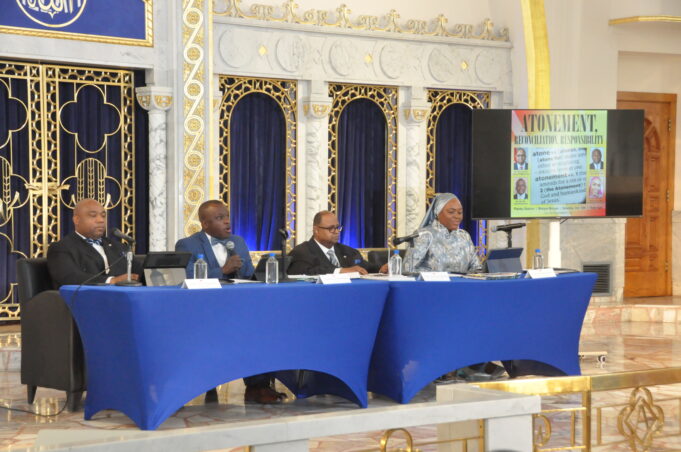CHICAGO—Muslims, visitors and guests gathered on the grounds of the National Center of the Nation of Islam October 11-13 for a weekend of activities, presentations and workshops to commemorate the 29th Anniversary of the historic Million Man March and Holy Day of Atonement.
The March, called by the Honorable Minister Louis Farrakhan, took place on Monday, October 16, 1995, in Washington, D.C., on the National Mall, where nearly two million Black men gathered under the theme: Atonement, Reconciliation and Responsibility. That day was declared a Holy Day.
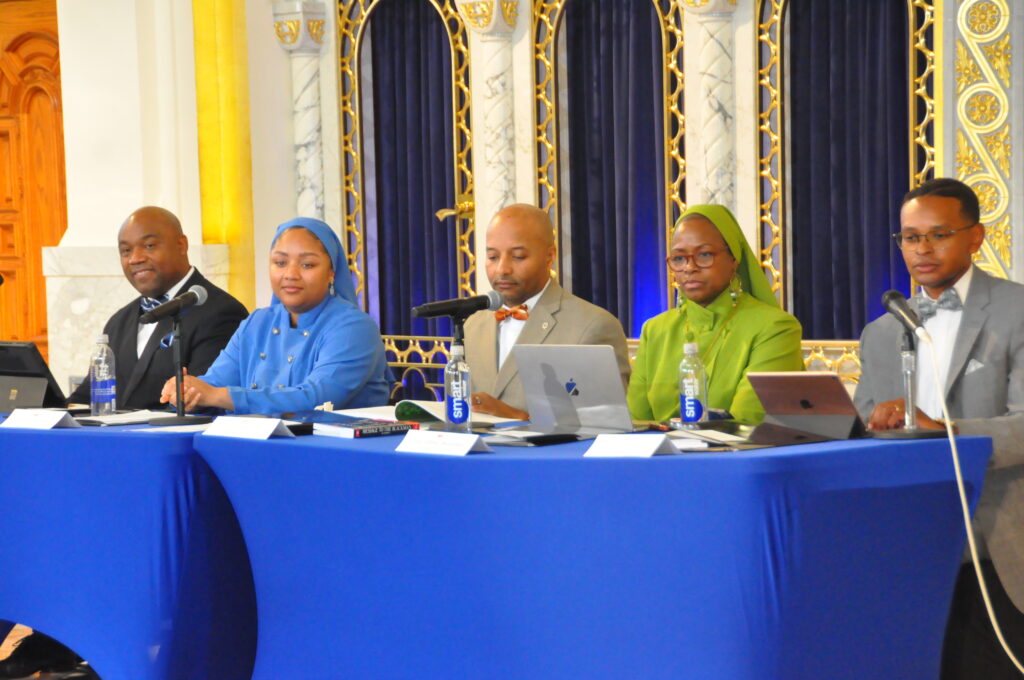
The commemoration took place in Chicago on the grounds of the National Center at Mosque Maryam and Muhammad University of Islam and included a plenary session and workshops that were streamed online.
On Friday, October 11, a special Jumu’ah (congregational prayer) service was led by Student National Imam Sultan Rahman Muhammad. On October 12, the day started with a plenary session followed by powerful and informative workshops.
“Atonement, Reconciliation, Responsibility,” was the plenary session featuring N.O.I. General Counsel and Student Minister Abdul Arif Muhammad, Student Eastern Regional Minister Arthur Muhammad and Student Southern Regional M.G.T. Captain Dr. Nusaybah Muhammad. Student Minister Daniel Muhammad served as the moderator.
Panelists shared the majesty of the Million Man March and reflected on its historical importance and the work of the men and women that went into making it a success.
“We have come together this weekend to observe and celebrate the 2024 Holy Day of Atonement. There would be no Holy Day of Atonement without the greatest assembly of Black men this world has ever seen in the Million Man March.
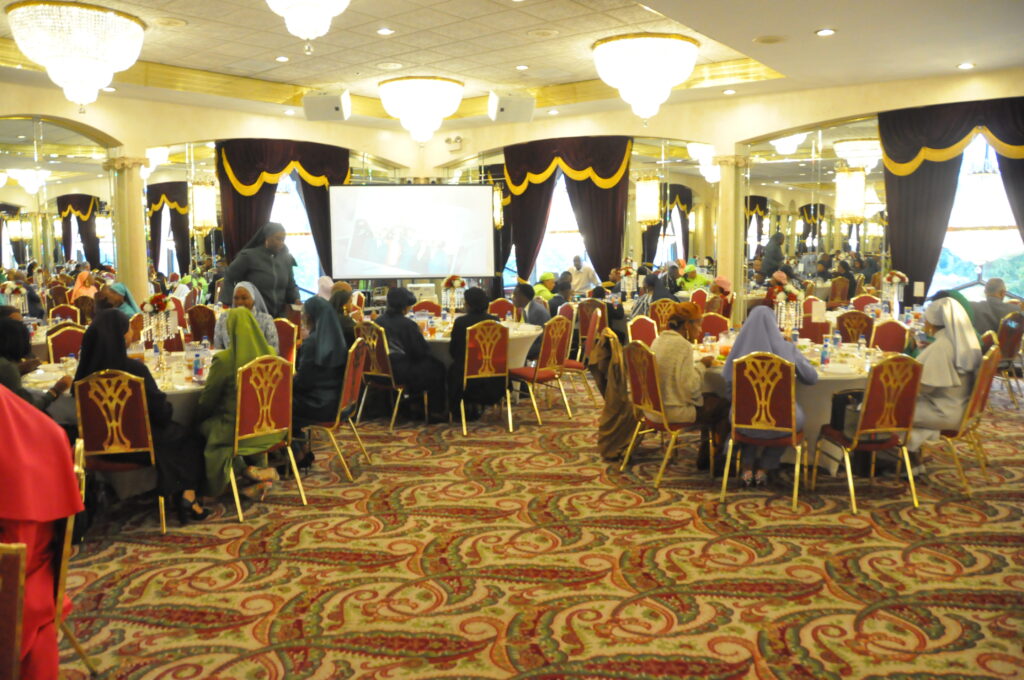
Nearly two million Black men came from all across the country to descend on Washington, D.C. Not to gripe and complain, nor to beg for jobs and justice, but to stand before God under three principles: Atonement, Reconciliation, and Responsibility,” said Student Min. Daniel, setting the tone for the plenary session.
Student Min. Abdul Arif Muhammad, who is also a member of the N.O.I. Shura Executive Council was the Mid-Atlantic Regional Minister stationed in Washington, D.C., at Mosque No. 4 during the time of the Million Man March. He stressed the importance of keeping the March out front even as years pass.
“As time goes on, we tend to forget because life moves on. There are momentous events in our lives, and as time goes by, we may not necessarily recall them with the strength and the meaning that they are. This day, October 16, 1995, is a day that is one of the greatest days in the history of Black people,” he said.
Student Min. Arif also relayed to the audience that the Holy Day of Atonement is a declared Holy Day and should be treated as such. “Let us respect what God gives to us, just like other people when it is their Holy Day.
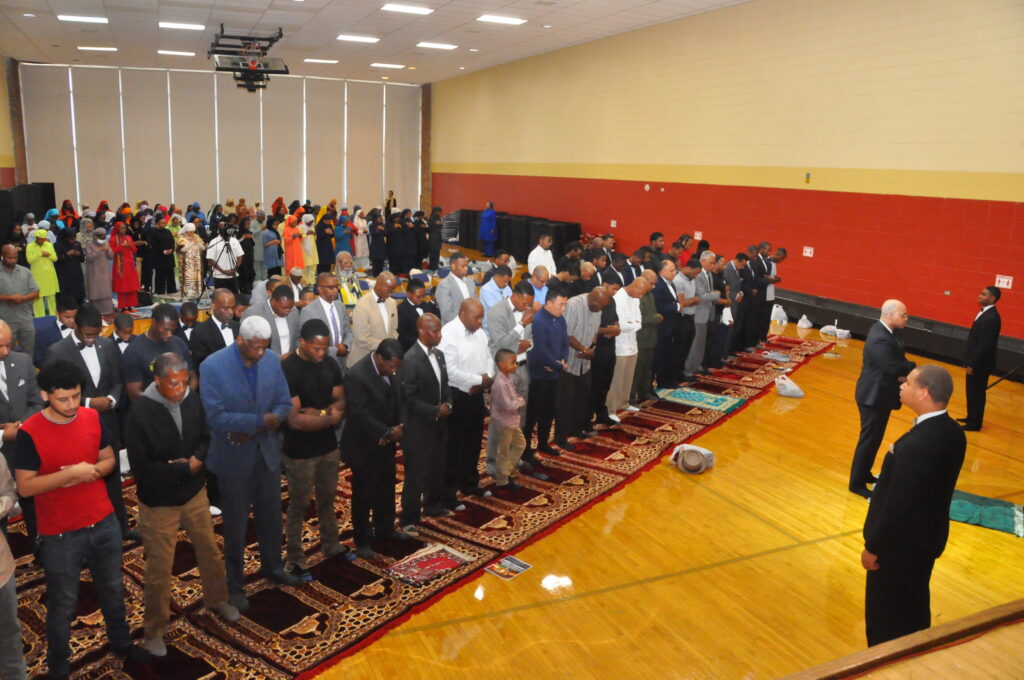
They take off from work and they take off from school. The Holy Day of Atonement is really a day of absence; no work, no school, no play, we pray, we fast, and we come together as a community,” he explained.
Sister Dr. Nusaybah shared her experience as one of the many Black women who attended the March and stressed the support and excitement that sisters had on that day. She spoke on those who mislabeled the March as something it was not.
“The media enacted this foolproof plan to bring a divide amongst women and the March, and unfortunately, some of our sisters fell into the trap of the Willie Lynch syndrome.
They did this by calling this beautiful March and the conveners sexist and could not see the beautiful call from Allah (God) through Minister Farrakhan to our men to achieve atonement within our communities through responsibility and restoration. Let me be very clear, there is nothing sexist about the Honorable Minister Louis Farrakhan!” she stated as the audience applauded.
After the plenary session, attendees had three powerful workshops to choose from.
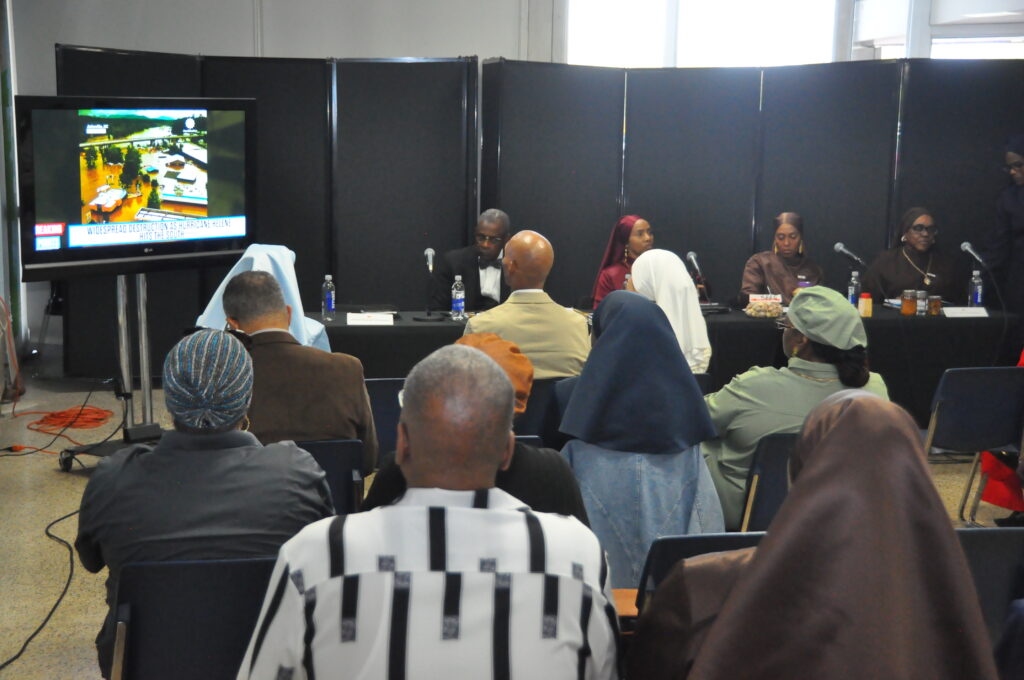
The workshops were: “Disaster Preparedness: Are You Ready?” “Strengthening The Bond Of Marriage and Preparation For Marriage” and “Achieving Good Health Through How To Eat To Live.”
The marriage workshop panelists included Student National Secretary Sa’ad Alim Muhammad, Eastern Regional Student Minister Arthur Muhammad, Student Minister Sultan Muhammad of Grand Rapids, Mich., Eastern Regional Student M.G.T. Captain Johnna Muhammad, Sister Kenya Muhammad and was moderated by Sister Nneka Muhammad.
Recognizing and embracing the principle of struggle in marriage is essential, explained Student Min. Arthur. He and his wife Sister Judge Nichelle Muhammad married for 31 years. “This is critical because it causes us to keep striving to become one.
Struggle also causes us to not entertain divorce. It puts in the mind frame that no matter what, I am not giving up. Being one must always be the goal,” he shared.
Brother Sa’ad and his wife Sister Tameka have been married for 22 years. He spoke on the importance of prayer in marriage and why it must be central in marriage to gain the favor of Allah (God) to properly care for one another.
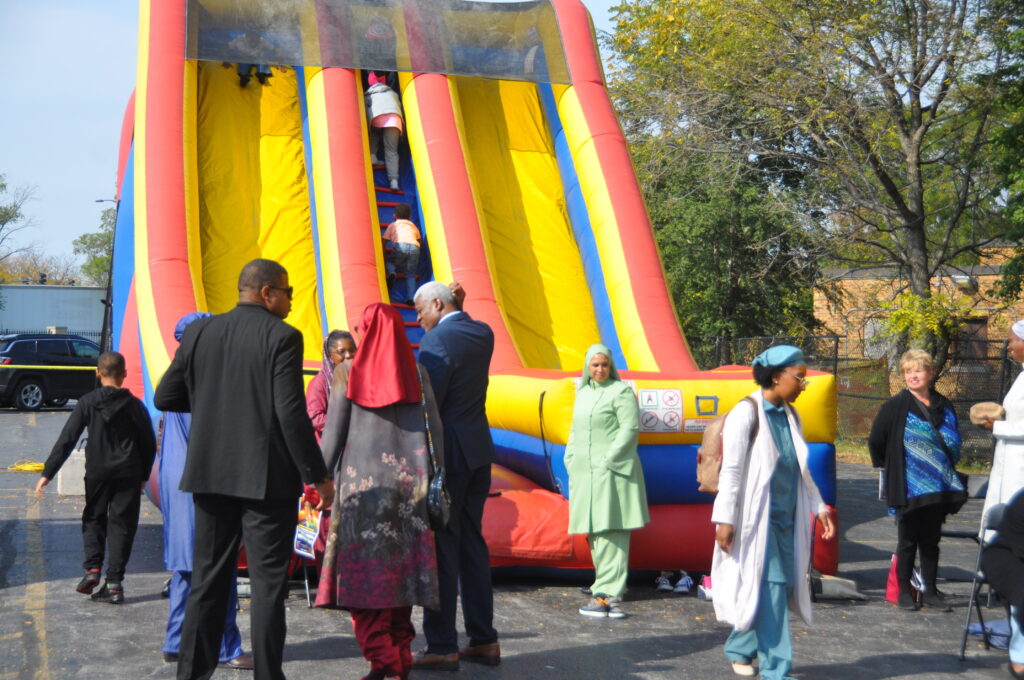
“If anyone has hell in their life and hell in their home or hell in your marriage, the first question should be: when was the last time I prayed and how often do I pray and do I pray with my spouse?
How can we ask for The God to intervene in our marriage when we’re not even showing Him that we’re willing to go down this road to be united with our spouse by praying with your spouse?” said Brother Sa’ad.
Another monumental workshop was “Disaster Preparedness: Are You Ready?” Panelists included Sister Vivian Muhammad, Southwest Regional Student Minister Dr. Abdul Haleem Muhammad.
Student National Auditing Supervisor A’ishah Muhammad, Brother Rudolph Muhammad, and Sister Alva Muhammad. Recent weather-related disasters like Hurricanes Helene and Milton have once again shined a spotlight on the importance of disaster preparedness.
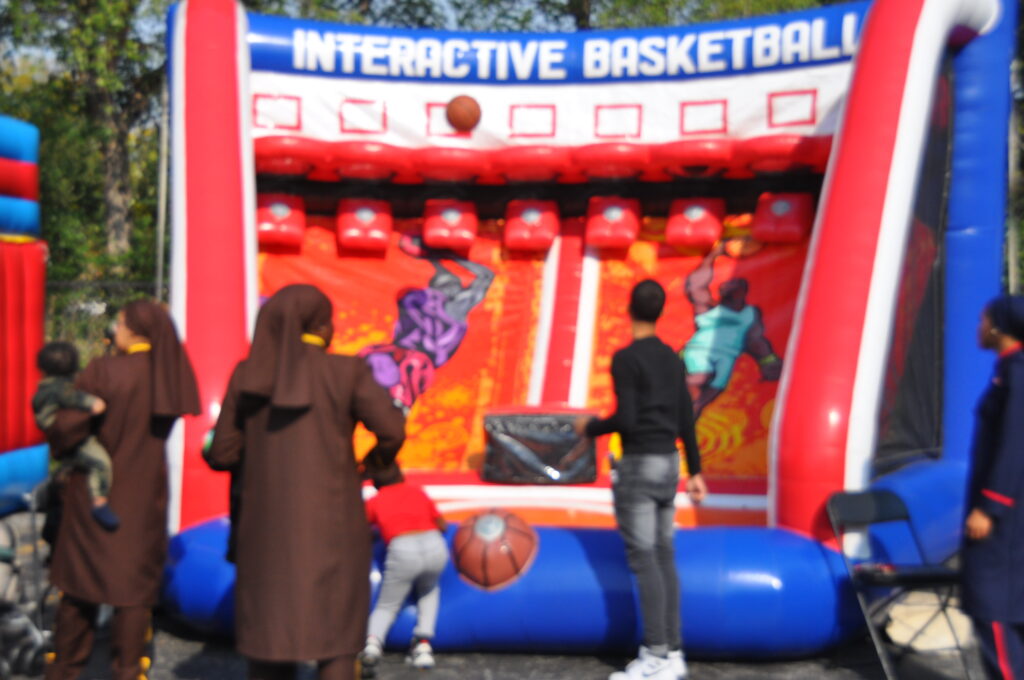
“I want you to think about security and safety because that is what really the Nation of Islam is about. You cannot have sustainable development without consideration of a word called resilience.
Everywhere you go, you should have a disaster preparedness plan; you should have a plan at home; you should have a plan at work; you should have a plan at school; you should have a plan in your vehicle. Sometimes you can shelter in place, and other times you are going to need a ‘to-go bag,’” said Student Min. Dr. Haleem.
Sister Vivian talked about the importance of storing up food for emergencies. “As the food runs out, we have to be in a position where we do not run out of food. We have to know what food to store, we have to know how much to store, and there are multiple ways on how to properly preserve and store food.
Natural disasters inevitably lead to famine, crops get destroyed, the storage of food becomes pressing. We have to have supreme organization and supreme cleanliness.
If your storage of food is disorganized, if you do not have labels, if you are not rotating your canning items, if they are not dated, everything is in an unclean environment, you are not properly prepared for a disaster,” she said.
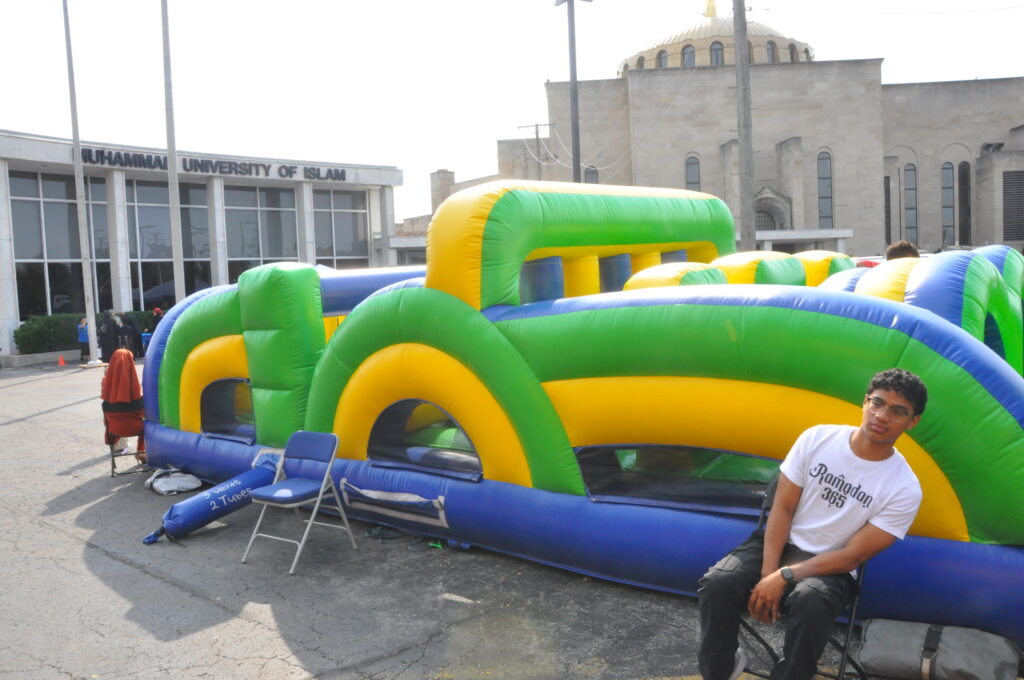
“Achieving Good Health Through How To Eat To Live” was facilitated by Student Min. Amin Muhammad and panelists included Dr. Safiyya S. Shabazz, Dr. Jessica L. Muhammad, Student and Dr. Abdullah Hasan Pratt. Panelists stressed the importance of implementing the divine guidance in Books one and two of “How to Eat to Live” by the Honorable Elijah Muhammad.
The physicians answered audience questions and shared key points from “How to Eat to Live.”
During the day children enjoyed themselves outside for a family fun day, where plenty of bounce houses, music, and food were available. The Salaam restaurant was also open during the weekend where delicious and healthy cuisine was served.
To view the 2024 Holy Day of Atonement plenary and workshop sessions visit media.noi.org
(Shawntell Muhammad can be contacted at [email protected].)












